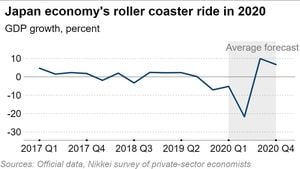Mexico and the United States are set to commence collaborative discussions on trade issues beginning next Monday, as informed by Mexico's Economy Minister Marcelo Ebrard. This meeting is part of the broader dialogues aimed at addressing the tariffs imposed by former President Donald Trump, which have created tensions and uncertainty between the two neighboring countries.
Ebrard revealed the news after meeting with significant U.S. officials, including Commerce Secretary Howard Lutnick, USTR's Jamieson Greer, and President Trump's top economic advisor, Kevin Hasset, during a gathering at the White House. He stated via social media platform X, "We held meetings with Howard Lutnick, Commerce Secretary of the United States, as well as Jamieson Greer from USTR and the President's Economic Council, Kevin Hasset. A constructive dialogue has begun, and joint work will start next Monday." This dialogue is seen as pivotal, particularly considering the looming deadline of March 4, when the U.S. aims to impose a 25% tariff on imports of Mexican products if both countries cannot reach agreements satisfying U.S. concerns.
Among the key issues expected to be discussed are concerns over migratory flows, national security, and drug trafficking, especially the fentanyl crisis. The Mexican government remains committed to tackling these challenges alongside the U.S. to ease the tensions and potentially avert substantial tariff implementations.
The upcoming discussions are not just focused on tariffs but extend to revisiting the United States-Mexico-Canada Agreement (USMCA). This agreement, set to be reviewed by July 2026, is expected to be central to the dialogues, with Ebrard emphasizing Mexico's eagerness to defend its economic interests. He has articulated the necessity of emphasizing the benefits of economic integration between the two nations, indicating millions of jobs are reliant on transnational trade connections.
During the talks, the Mexican delegation included key players such as Undersecretary of Foreign Trade Luis Rosendo Gutiérrez, Undersecretary of Industry and Commerce Vidal Llerenas Morales, and other notable officials. They are all on the same page about ensuring Mexico’s concerns are adequately addressed to prevent the anticipated tariffs.
On the American side, Secretary Lutnick and USTR Greer hold significant authority to reshape and possibly revise trade behaviors and agreements stemming from the current administration's directives. The dialogue emphasizes collaborative negotiation rather than contention, underlining the objective of finding mutually agreeable outcomes rather than being pitted against one another.
Backtracking to previous agreements, former President Trump has established executive orders permitting high tariffs if Mexico and Canada fail to comply with certain stipulations surrounding migration, narcotics, and overall security issues. This political backdrop makes the upcoming negotiations even more significant, with the U.S. already having imposed additional tariffs on imports from China, displaying the administration's aggressive stance on trade and tariff-related issues.
Since past tariffs have created significant challenges for both countries, Ebrard's delegation is particularly focused on negotiating effectively to avoid the harsh impact such measures would have on job markets and individual consumers. The proposed 50% tariffs on steel and aluminum by the U.S. administration, viewed as unnecessary by the Mexican officials due to America's surplus position concerning these goods, adds complexity to the negotiation efforts.
Ebrard is optimistic about maintaining these discussions as constructive, framing them as the first of many dialogues to improve and maintain trade relations. He aims to protect Mexico's commerce interests vigorously, highlighting the strategic importance of these negotiations for future relations between both nations.
With tensions surrounding trade still palpable, how both countries proceed will undoubtedly inform U.S.-Mexico economic ties moving forward. The anticipation leading up to next week's discussions highlights the immediate necessity to address these pressing economic concerns collaboratively.
Overall, as Ebrard prepares to lead the continued negotiations, his advocacy for mutual respect and collaboration remains at the forefront of these discussions—a path he believes is necessary for both the short-term and long-term health of cross-border trade.



